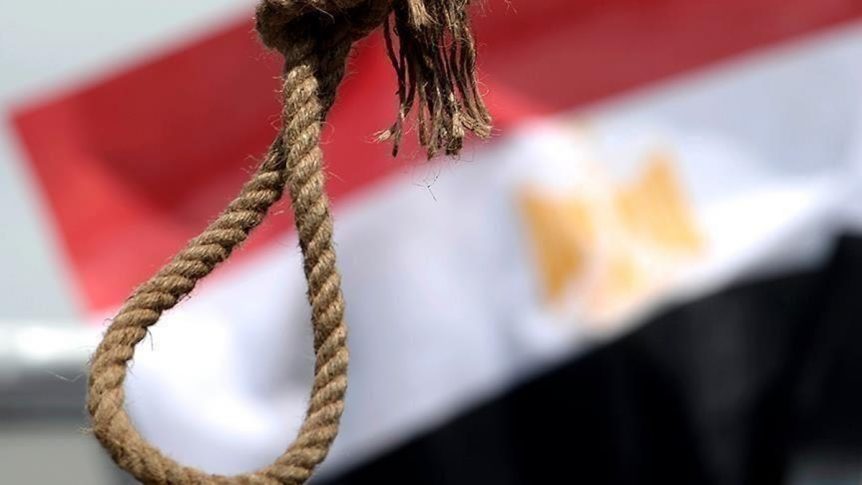The undersigned human rights organizations call upon the President of Egypt Abdel Fattah al-Sisi to halt the execution of 16 people sentenced to death in July 2021, in Case No. 303 of 2018, known in the media as “the bombing of the police bus in Beheira.” This mass verdict was issued after an unfair trial before an exceptional court, the Damanhour Emergency Supreme State Security Court, whose rulings cannot be appealed. The undersigned organizations demand a retrial of the defendants before an ordinary criminal court, especially in light of President Sisi’s decision to end the state of emergency last October.
The events precipitating the mass death sentencing date back to August of 2015, when a police bus was attacked with an explosive device in Al- Beheira governorate, which resulted in the death of three policemen and the injury of others. Human rights organizations documented an array of violations against those convicted in the case, violations that stripped the proceedings of minimum fair trial standards. The defendants were arrested several days after the bombing attack on the basis of anonymous investigations, and they stated that were subject to numerous violations during the Public Prosecution investigations, including arbitrary arrest, enforced disappearance, and torture. Family members of the defendants were also abused and intimidated.
In 2018, the trial of the 16 men was referred to an exceptional emergency court despite the fact that the crime was committed before the state of emergency was declared in 2017. Thus, the Egyptian government used the emergency law retroactively in order to deprive the defendants of their right to a normal trial with avenues of appeal. The exceptional court then issued a mass death sentence against the 16 men, which was ratified by President Sisi last January.
The undersigned organizations condemn the continued rise of capital punishment in Egypt, represented by the mass death sentencing in Case No. 303 of 2018, wherein 16 Egyptian citizens were given the ultimate irreversible penalty after a trial lacking in minimal standards of fairness and justice. The mass verdict further defies the widely accepted legal principle of individual criminal responsibility, especially in the context of a fundamentally flawed trial before an emergency state security court, the rulings of which cannot be appealed.
The mass death verdict comes amid a sharp rise in capital punishment throughout Egypt, as the nation’s criminal justice system has expanded its use of the death penalty since July 2013 through the 2017 emergency law together with new criminal legislation, such as that in the Code of Criminal Procedure or in the Penal Code. This legislation has led to an increase in the number of crimes that carry the death penalty, as well as a reduction in the degree of litigation before execution (as result of the emergency law as well as amendments to the work of the Court of Cassation). The judicial system is sentencing ever-increasing numbers of citizens to death, a number that is unprecedented not only relative to recent years but throughout Egypt’s modern history, since the founding of the Republic in 1952.
The undersigned human rights organizations reaffirm their call on President Sisi to halt the execution of the 16 men sentenced to death in Case 303 of 2018, and to suspend the implementation and issuance of all death sentences, even if temporarily, pending a broad societal dialogue on the abolition of capital punishment.
The organizations further call for the Code of Criminal Procedure to be amended in order to prevent the referral of civilians charged with capital crimes to exceptional or military courts, thus upholding fair trial guarantees, including the right to effective council and the right to appeal the verdict before the Court of Cassation.
The organizations also call for retrials in cases marred by human rights violations – as stipulated in Egypt’s constitution and in line with its ratified international and regional human rights conventions and treaties. If the execution of the 16 defendants were to be carried out, it would not only violate Egypt’s constitutional and international obligations, it would further signify an utter absence of political will to reform criminal justice system in a way that effectively compels it to uphold basic principles of justice in practice.
Undersigned organizations:
- Egyptian Initiative for Personal Rights
- Egyptian Commission for Rights and Freedoms
- Stope the Death Penalty Campaign – Egypt
- Association for Freedom of Thought and Expression
- Egyptian Front for Human Rights
- El Nadeem Center
- Committee for Justice
- Cairo Institute for Human Rights Studies
- The Freedom Initiative
Share this Post

